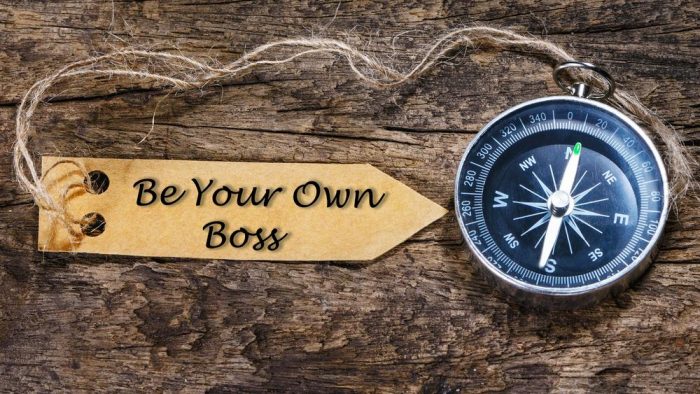Being a sole trader is simultaneously an exhilarating and terrifying experience. The sense of freedom and control can be exciting and freeing, but being solely responsible for your own business endeavours carries its own set of risks and challenges. There are some who are definitely cut out for this lifestyle, and some who aren’t; which of these two camps you fall into depends entirely on your past history, your personality, and your preferred way of working.
It can sometimes be difficult to figure out whether becoming a sole trader is an avenue you want to pursue or not. The 9-to-5 lifestyle is slowly fading, but there are many companies who still espouse this kind of work, and it’s reinforced to the point that many people don’t believe they can become a sole trader, or they become so used to the lifestyle that leaving it is more upsetting than invigorating. We’ve gathered together a list of pros and cons of being a sole trader to help you decide whether you want to go for it or not.
Pro: Higher degree of control
When you’re an employee, your manager dictates pretty much everything: your workflow, your break times, your leaving times, your holidays and much more. You don’t really have a huge degree of control over how you work even in the most liberal of companies. When you become a sole trader, you’re suddenly the master of your own destiny; your client base, workflow and even invoice management is entirely up to you. This gives you a much greater degree of control over how your business operates and means that your work truly feels rewarding; every single good decision reflects on you and you alone, and no manager will ever be able to claim that from you. In addition, if you don’t like the look of a client, you can walk away, and that choice is entirely yours to make.
Con: You’re on your own
Of course, just as good decisions reflect on you, bad decisions also reflect entirely on you. You don’t have a workforce to back you up or delegate tasks to; you’ll have to handle everything yourself, including taxes, invoice chasing and dealing with difficult clients. In addition, if you’re going into an industry you’re not familiar with, you might struggle with the ins and outs of that industry, and there’s nobody to train you. Let’s say you’re a binary options trader, and you’re learning the basics and intermediate techniques of your industry. You’re going to struggle if you don’t have people to help you. That’s where online tools come in. There are plenty of tools out there to help you as a binary options trader, but you need to know where to find them yourself, which can be tricky.
Pro: You make more money
With no workforce to speak of, all the profits from your business endeavours are yours and yours alone. If you score big with a particularly generous client, you won’t need to share your money with anyone else. Of course, a portion of it will have to go towards tax, and since you’re a sole trader, you’ll have to fill out those self-assessment forms yourself (more on which later). That said, you’d still have to pay income tax if you were employed, so you’re really not losing out on that much in the grand scheme of things. If your business is successful, being a sole trader will pay serious dividends, and you’ll be glad you kicked that desk job to the curb.
Con: Responsibility
When you work for a company, your taxes and other financial concerns are usually taken care of by a human resources (HR) department. When you’re a sole trader, that responsibility rests squarely on your shoulders, so all income you make needs to be declared to HMRC (if you’re in the UK; if you’re elsewhere, the relevant tax authority in your area) with the correct paperwork. Not filing this paperwork will lead to major headaches down the line and could see you fined a hefty amount, so you need to be prompt and correct with your tax filings. If you’re the kind of person who keeps meticulous records and makes all payments on time already, then you’ll be fine, but not many of us can profess that about ourselves.
We haven’t mentioned everything that’s good and bad about being a sole trader; some of the pros and cons will be personal to you depending on your industry and lifestyle, while others will only come with experience. That said, we hope we’ve given you a bit of a head-start when it comes to deciding how you’re going to work in future.
Find a Home-Based Business to Start-Up >>> Hundreds of Business Listings.


















































